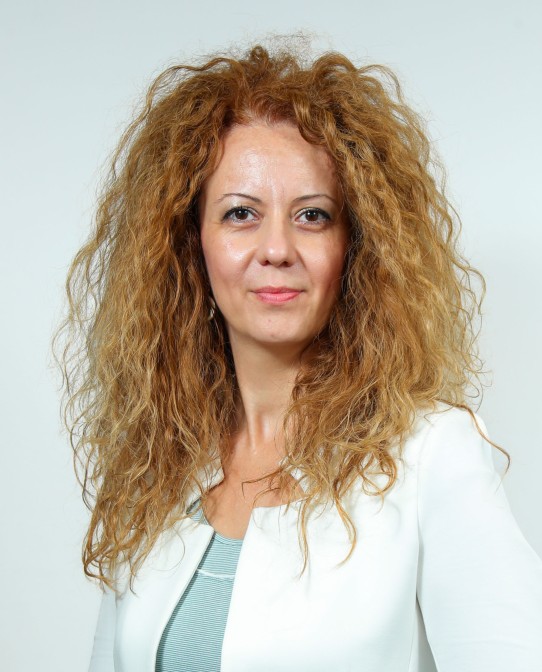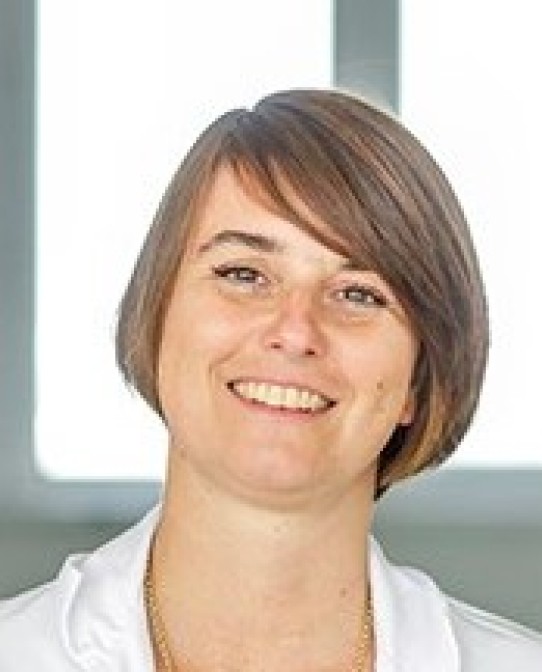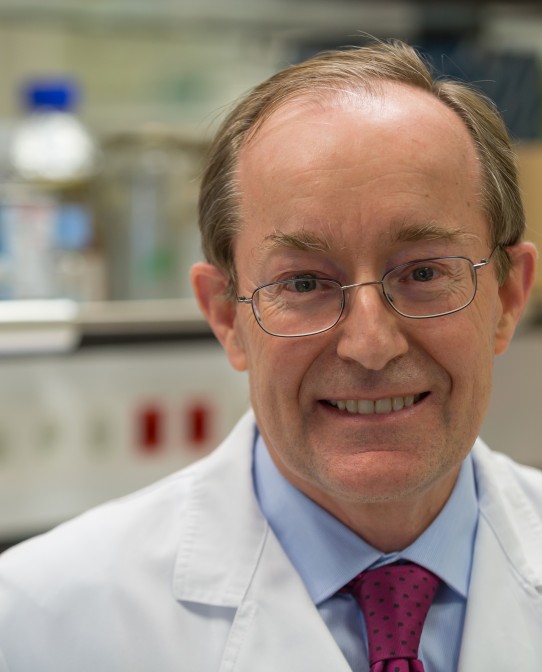
Milena Cavic
Milena Cavic holds a PhD in Biochemistry from the University of Belgrade, Serbia, and is currently employed at the Institute for Oncology and Radiology of Serbia as a Principal Research Fellow. She gained international scientific experience in Spain and Germany. Her current research focus involves investigating molecular mechanisms of response and resistance to chemo-, radio-, targeted, and immunological anticancer therapies, as well as the advancement and implementation of cancer early detection and screening programs. Dr. Cavic serves as the Interim Deputy Chair of the International Association for the Study of Lung Cancer (IASLC)’s Screening & Early Detection Committee and a member of the Basic and Translational Science Committee since 2021. Dr. Cavic is the President of the EACR-affiliated Serbian Association for Cancer Research. She is a coordinator and principal investigator in Horizon Europe projects. Dr. Cavic is a (co)author of over 60 scientific publications and has served as an expert evaluator of proposals in Horizon (Life sciences panel) and European Cooperation in Science and Technology (COST) programs. In 2023, she enrolled in an MSc program for Management in the Health Care System at the Faculty of Medicine, University of Belgrade, to shape future relations with students, peers, upper Management, and national regulators. In 2024, Dr. Cavic participated in the establishment of the first national Master of Science Bioinformatics program at the Faculty of Medicine, University of Belgrade. Her efforts are also directed towards the implementation of strategies for dealing with inequity in cancer research and healthcare. She is passionately involved in the education of young scientists as a lecturer and mentor at the University of Belgrade, Serbia, and the University of Barcelona, Spain. She participates as a mentor in the EACR Pilot Mentoring Programme, currently enjoying a two-way exchange of experience and knowledge with a female researcher from India.

Celine Mascaux
Celine Mascaux obtained her medical degree and trained as a medical oncologist in Belgium, focusing on thoracic oncology since 2003, both in clinical practice and translational research. In 2008, she earned her PhD from the Free University of Brussels, Belgium, based on a project exploring the molecular mechanisms of lung carcinogenesis. During her postdoctoral training, she gained international experience with teams of excellence. As an IASLC Fellowship Awardee in 2009, she spent three years at the University of Colorado in Denver, USA, working in Fred Hirsch’s laboratory, followed by six months as a postdoctoral fellow at Boston University, USA, under the mentorship of Avi Spira. She then spent two years at the Princess Margaret Cancer Centre and University Health Network in Toronto, Canada, where she was mentored by Frances Shepherd for clinical aspects and Ming Tsao for laboratory work. In 2015, after earning her habilitation to supervise research, she returned to Europe as an Associate Professor at Aix-Marseille University, France.
Since 2019, she is Full Professor and Head of thoracic oncology clinical and research activities at the Strasbourg University in France. She continues her translational research within the INSERM 1260 unit and is currently mentoring researchers. Her expertise includes biobanking, protein, RNA, and DNA analyses based on human samples and human-derived preclinical models, with a focus on lung carcinogenesis and precision medicine biomarkers. She is also the principal investigator of phase I, II, III, and IV clinical trials, sponsored by academic groups and industry. Currently, she serves as the Chair of a large Pulmonology department in Strasbourg, France. She has authored over 120 scientific papers and 10 book chapters. Additionally, she is an ESMO faculty member, Vice President of the GOLF (French Group of Thoracic Oncology) of SPLF, and Chair of the Basic and Translational Science Committee of the IASLC.

Luis M. Montuenga
Luis M. Montuenga is a Full Professor of Cell Biology at the Schools of Sciences and Medicine and a Senior Researcher at CIMA, Cancer Center Clínica Universidad de Navarra in Pamplona, Spain. He graduated in Sciences In 1981 with Honors, and was awarded his PhD in 1985. He spent two years at The Royal Postgraduate Medical School (Hammersmith Hospital) in London. From 1995 to 1998, he was a visiting researcher at the Biomarkers and Prevention Research Branch at NCI, NIH. In the past, he has been Head of the Oncology Division of CIMA, Dean of the School of Sciences, and Vice-President for Research at the University of Navarra. Currently, he is Head of the LUNGSEARCH Biomarkers lab of CIMA. Dr. Montuenga has authored more than 230 peer-reviewed articles, supervised 24 doctoral theses, and presented at numerous conferences. He has been a member of the European Consortia for lung cancer research. He is on the board of the Research Network in Oncology (CIBERONC) of the Spanish Health Department.
IASLC member for more than 25 years. Has was part of the Screening & Early Detection Committee for four years. He is currently a member of the Staging and Prognostic Factors Committee (molecular subcommittee). Since 2011, he has been Associate Editor of the Journal of Thoracic Oncology and was of JTO-CRR (2020-2023).
His main research aims are to discover, validate, and standardize molecular markers to develop new strategies for lung cancer early detection and patient management based on a deeper biological knowledge of lung cancer. He has contributed to clarifying the role of several novel kinases in lung cancer and has several projects on lung cancer microenvironment. He is particularly interested in technological innovation (novel technologies for spatial analysis and liquid biopsy). His expertise in cellular and molecular oncology is enriched by continuous collaboration with a number of interdisciplinary clinical colleagues.

Triparna Sen
Dr. Sen is a recognized leader in lung cancer research, specializing in therapy-resistant cancers like small cell lung cancer (SCLC) and oncogene-driven non-small cell lung cancer (NSCLC). Her pioneering work on DNA damage response (DDR) pathways and immune activation through the STING pathway has led to the development of novel therapeutic strategies and clinical trials aimed at improving treatment for aggressive lung cancers. Additionally, she has identified key molecular drivers of NSCLC-to-SCLC transformation, advanced the understanding of therapy resistance and driven innovative treatment approaches.
With over 60 peer-reviewed publications in top journals such as Cancer Discovery and Nature Communications, Dr. Sen has made significant contributions to the scientific community. Her research has been recognized with multiple prestigious awards, including the AAAS Martin and Rose Wachtel Cancer Research Award and the 40 Under 40 in Cancer: Emerging Leaders Award. As an independent investigator, she has secured three NIH R01 grants and garnered funding from major pharmaceutical companies.
Dr. Sen’s impact extends beyond research. She has played a pivotal role in the International Association for the Study of Lung Cancer (IASLC), contributing to key scientific and leadership initiatives. Through her involvement in organizing conferences, reviewing abstracts, and serving on committees, she has advanced the global lung cancer research agenda. Her commitment to mentorship is equally strong, having mentored numerous postdoctoral fellows, graduate students, and junior faculty, fostering the next generation of cancer researchers. She has served as the President of the Association for Women in Science Gulf Coast Houston Chapter. Her commitment to leadership reflects her dedication to enhancing diversity, inclusion, and professional development within the field.
Dr. Sen’s ongoing contributions to lung cancer research, clinical trials, continued leadership, and commitment to mentorship continue to shape the future of the field, improving outcomes for patients and inspiring the next generation of scientists.

